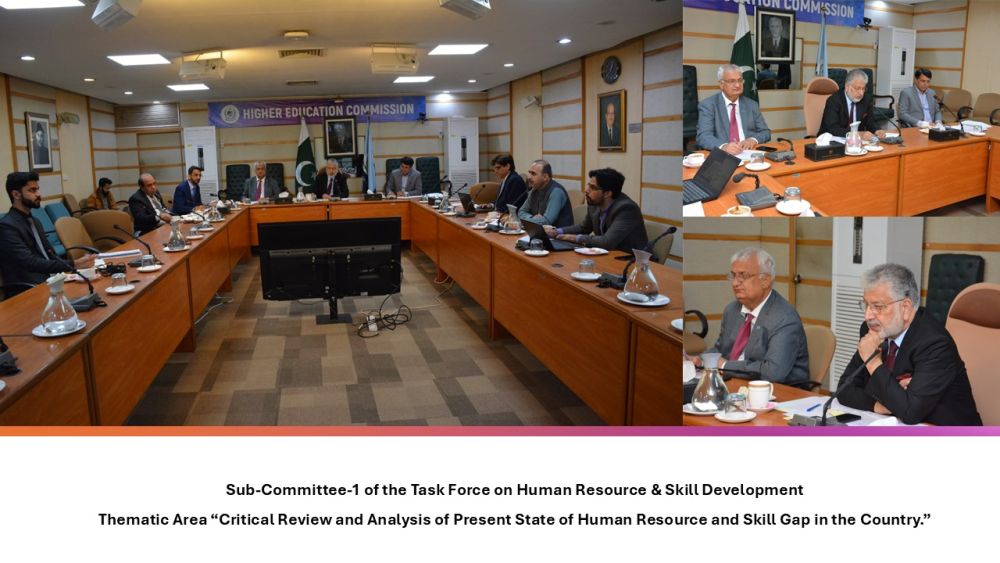Bridging the Skills Gap: A Call for Agricultural Innovation in Pakistan
Posted 1 year ago
Agriculture, the backbone of many economies, including Pakistan, faces an urgent skills gap. The Higher Education Commission (HEC) Chairman, Prof. Dr. Mukhtar Ahmad, stressed the need to recalibrate educational curricula to meet the industry's evolving demands. This was emphasized during the Sub-Committee-1 meeting of the Task Force on Human Resource and Skill Development. He particularly highlighted the role of industrialists and agricultural stakeholders in identifying gaps in skills essential for the future of farming disciplines.
The initiative, spearheaded by the Ministry of Planning, Development, and Special Initiatives, ensures that Pakistan's educational institutions' graduates possess technical expertise and the life skills necessary to thrive in a rapidly evolving market. Dr. Ahmad's remarks reflect a growing recognition that the business community often has a clearer understanding of the specific human resource needs required for economic growth.
Several prominent voices added their insights to the discussion. Malik Faisal Jahangir, Chairman of the Rice Exporters Association of Pakistan, highlighted the untapped potential of the rice industry. He called for research into new rice varieties with improved yields and aromas and advancements in farm mechanization and food safety. Without scientists trained in these areas, he warned, the future of Pakistan's rice industry is at risk.
Dr. Mubarak Ahmad, an agro consultant with the Trade Development Authority of Pakistan (TDAP), stressed the need for integrating genetic technologies into agriculture, advocating for a "green-to-gene" revolution. His vision underscores the necessity of preparing researchers who can drive agro-market innovations and enhance crop productivity. Echoing these sentiments, Dr. Tariq M. Jadoon of Lahore University of Management Sciences (LUMS) highlighted the importance of entrepreneurial education in agriculture. He pointed to a four-month Agribusiness Diploma as a model for equipping individuals with the tools to innovate within this sector.
Beyond crops, the poultry sector also took center stage. Mr. Gul Aziz Awan, Secretary General of the Pakistan Poultry Association, proposed a solution to the nation's heavy reliance on imported soybean. He called for domestic soybean cultivation, which could lower costs and boost national self-sufficiency in the poultry industry. Similarly, due to inadequate value/ supply chains, Zulfiqar Ghazi, an agricultural business expert from Gilgit-Baltistan, lamented the waste of high-quality cherries in the region. His remarks on the urgent need for infrastructure and logistical solutions to unlock the economic potential of such commodities are very much needed in the country.
Prof. Dr. Muhammad Mukhtar, Vice Chancellor of the National Skills University Islamabad, provided a glimpse into the practical side of aligning education with industry needs. His institution's biannual reviews with industry leaders ensure curricula remain relevant to market demands. His approach serves as a model for fostering collaboration between academia and industry.
These discussions culminated in a call for ongoing dialogue. Engr. Dr. Mazhar Saeed, Advisor Finance at HEC, commended the participants for their contributions and stressed the need for sustained efforts to produce actionable recommendations for curriculum reform. This ongoing dialogue is crucial for the future of Pakistan's agriculture sector.
Pakistan stands at a crossroads. By aligning education with the agricultural sector's needs, the country can harness its vast potential to meet domestic demands and position itself as a competitive player in global markets. The time to act is before the skills gap widens into an unbridgeable chasm.





